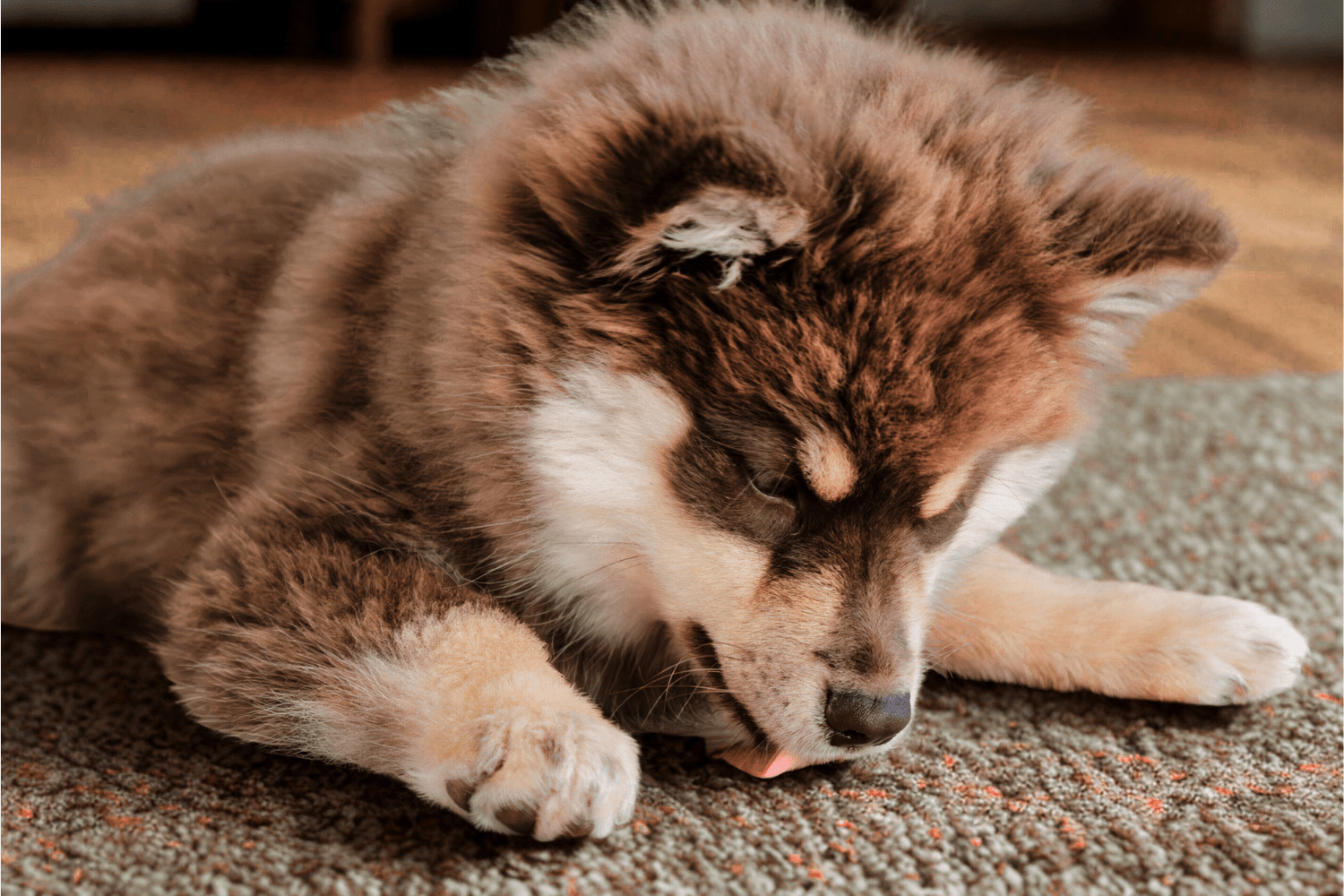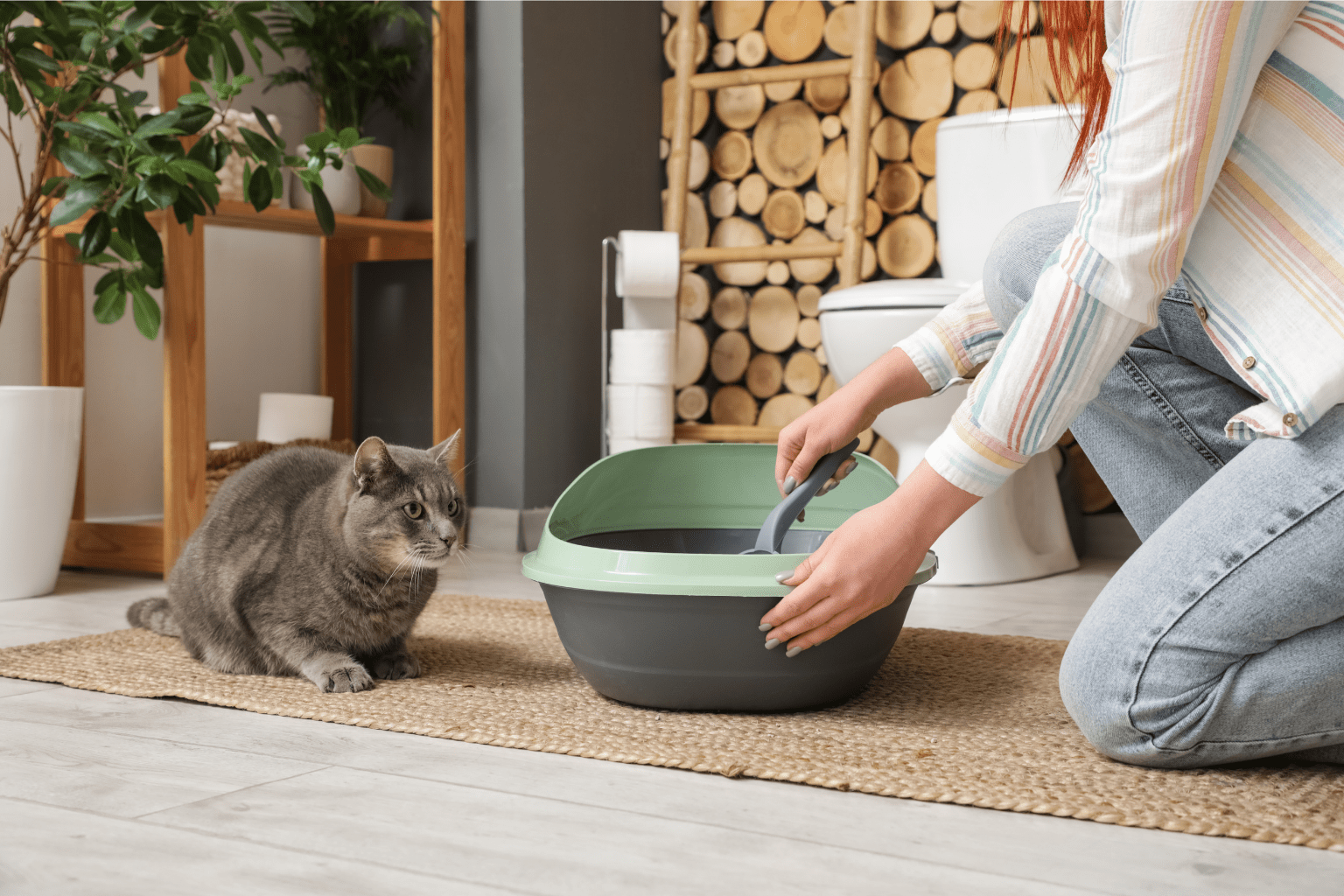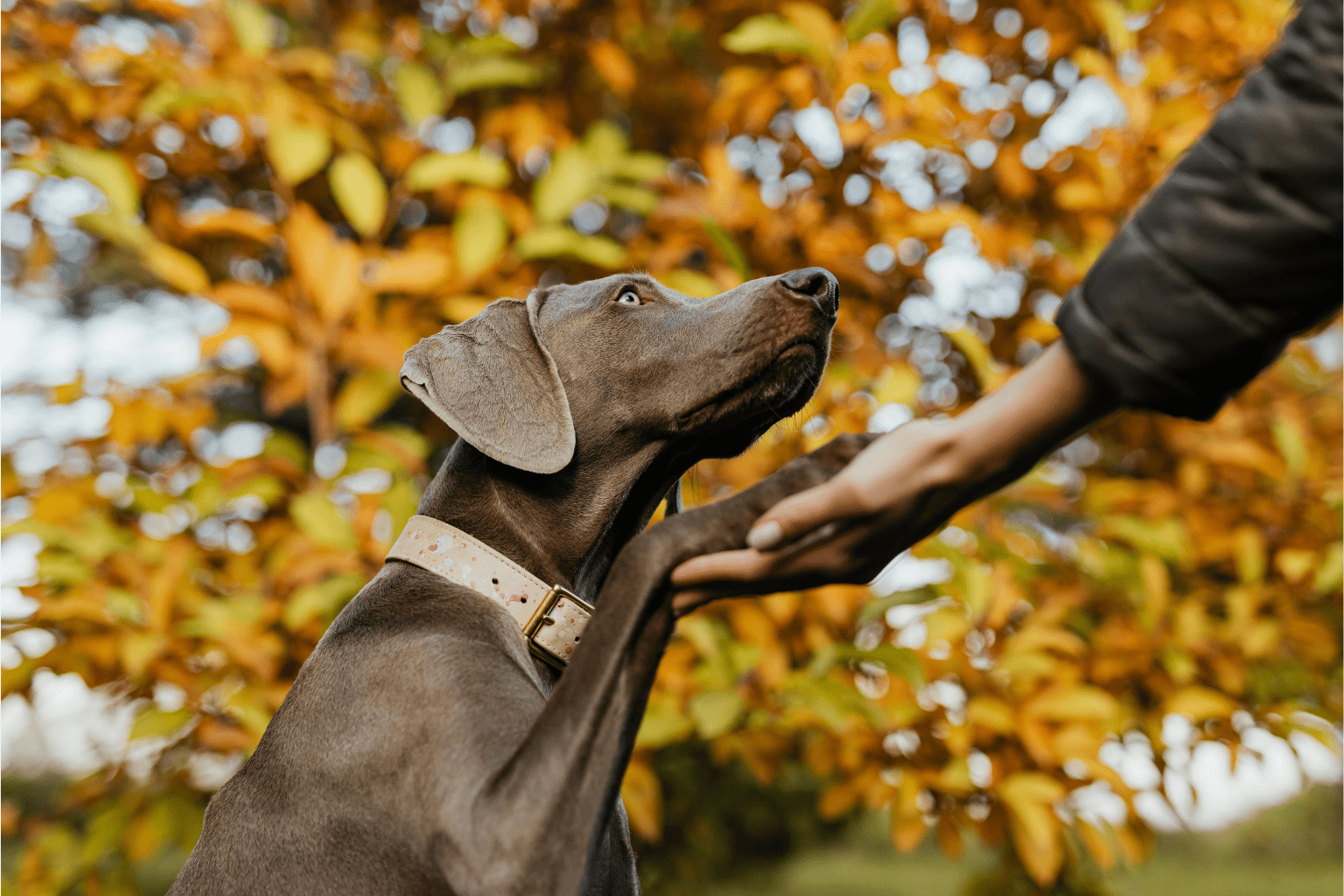Key Takeaways
- Frequent carpet licking by your dog may indicate more than simple curiosity.
- This behavior can become a daily habit that warrants closer attention.
- Your dog might be trying to communicate something important through carpet licking.
- Understanding the reasons behind carpet licking is essential for pet parents.
Table of Contents
- When Carpet Licking Means More Than You Think
- What's Really Going On? The Top Reasons Dogs Lick Carpets
- When to Worry: Red Flags That Need Professional Attention
- The Hidden Dangers: What Your Dog Might Be Swallowing
- Natural Ways to Support Your Dog's Digestion and Calm Their Tummy
- Easing Anxiety & Boredom: Mental Wellness Matters Too
- Quick Wins: 5 Things You Can Do Right Now
- Medical vs. Behavioral: How to Tell the Difference
- When Home Remedies Aren't Enough: Working with Your Vet
- You've Got This, and We've Got Your Back
- Creating a Calm Environment: Beyond Quick Fixes
- Long-Term Digestive Wellness: The Foundation of Comfort
- Monitoring Progress and Knowing When You've Succeeded
- When Professional Guidance Enhances Natural Care
- Building Lasting Wellness Habits for Your Dog
When Carpet Licking Means More Than You Think
You catch your dog licking the same spot on the living room carpet, again. At first, it seemed like harmless curiosity, but now it's happening daily. Is this just a quirky habit, or is your pup trying to tell you something important about how they're feeling?
Here's the truth: dog licking carpet behavior is rarely about the carpet itself. Most of the time, it's your dog's way of communicating digestive discomfort, anxiety, or even nutritional needs. Understanding the "why" behind this puzzling behavior is the first step to helping your four-legged family member feel genuinely better.
You'll discover the hidden reasons driving carpet licking, when it crosses into concerning territory, and gentle, natural solutions that address the root cause, not just the symptom. Because you know your dog best, and that intuition telling you something's not quite right? Trust it.
What's Really Going On? The Top Reasons Dogs Lick Carpets

They're Following Their Noses and Natural Instincts
Dogs experience the world through taste and scent in ways we can barely imagine. Your carpet traps food crumbs, spilled drinks, pet odors, and fascinating scents from shoes and daily life. What seems like random licking is actually detailed investigation.
Licking also serves as self-soothing behavior rooted in puppyhood nursing memories. When stressed or uncertain, dogs instinctively return to this comforting action.
Digestive Discomfort Is the #1 Hidden Culprit
Nausea, acid reflux, or stomach upset drives many dogs to lick surfaces compulsively. Conditions like gastritis, inflammatory bowel issues, or even parasites create internal discomfort that manifests as repetitive licking behavior.
Dogs instinctively lick to stimulate saliva production or trigger their gag reflex for relief. Research shows that addressing underlying gastrointestinal problems significantly reduces surface licking in most cases. When Tango started her midnight rug-licking sessions, we discovered a food sensitivity was triggering nausea.
Stress, Anxiety, and Mental Understimulation
Dogs self-soothe through repetitive behaviors when anxious about thunderstorms, separation, new environments, or household changes. Why does my dog lick the carpet during storms? Because licking releases calming endorphins that help them cope.
Boredom from insufficient mental and physical stimulation can escalate occasional licking into compulsive habits. Dogs need jobs for their brains, without them, they create their own entertainment.
Quick Answer: Most carpet licking stems from either digestive trouble or emotional stress. Watch for accompanying signs like drooling, pacing, loss of appetite, or timing patterns that reveal triggers.
When to Worry: Red Flags That Need Professional Attention
Occasional exploratory licking differs dramatically from obsessive, repetitive behavior that signals distress. Understanding this distinction helps you respond appropriately to your dog's needs.
Schedule a veterinary evaluation if you notice these warning signs:
- Licking episodes lasting more than 10-15 minutes
- Accompanied by vomiting, diarrhea, lethargy, or appetite loss
- Visible distress signals: whining, panting, restlessness
- Blood in vomit or stool
- Sudden onset following diet changes or new medications
The risks extend beyond the behavior itself. Ingesting carpet fibers can cause intestinal blockages, while cleaning chemical residues pose toxicity concerns. Untreated digestive issues often worsen without intervention, and compulsive behaviors can escalate into obsessive-compulsive patterns.
The Hidden Dangers: What Your Dog Might Be Swallowing
Carpet fibers present serious ingestion risks. Synthetic materials can clump in your dog's stomach, potentially requiring surgical removal. Even natural fibers become problematic when consumed in large quantities.
Cleaning residues create additional hazards. Detergents, fragrances, and household chemicals linger deep in carpet pile long after application. Your dog's persistent licking carpet behavior exposes them to these toxic substances daily.
Carpets also harbor mold spores, dust mites, and bacteria that accumulate over time. What starts as harmless exploration can escalate into compulsive disorder if underlying causes remain unaddressed. Early intervention prevents both physical complications and behavioral escalation.
Natural Ways to Support Your Dog's Digestion and Calm Their Tummy

Gentle Homeopathic Support for Upset Stomachs
BestLife4Pets' digestive wellness formulas offer first-line support for dogs experiencing nausea, gas, bloating, and acid reflux. Our natural remedies work with your dog's healing processes rather than suppressing symptoms with harsh chemicals.
Our tasteless pellets slip easily into your dog's cheek pouch, no wrestling with liquid medications or disguising pills in food. Bailey, a rescue Beagle, went from midnight carpet-licking marathons to peaceful sleep within days of starting our digestive support formula.
Dietary Adjustments That Make a Real Difference
Small, frequent meals reduce stomach acid buildup that often triggers carpet licking episodes. Instead of two large meals, try three smaller portions throughout the day. Focus on easily digestible proteins like chicken or turkey while avoiding common allergens such as corn, wheat, and soy that can inflame sensitive stomachs.
When switching foods, transition gradually over 7-10 days to prevent digestive upset. Mix increasing amounts of the new food with decreasing amounts of the old food. Adding probiotics supports gut health and can significantly reduce nausea-driven behaviors like compulsive licking.
Easing Anxiety & Boredom: Mental Wellness Matters Too
Stress manifests differently in every dog, but common signs include ears pinned back, excessive yawning, dilated pupils, and repetitive behaviors like carpet licking. Chronic anxiety creates a cycle where stressed dogs seek comfort through licking, which temporarily soothes them but doesn't address the underlying emotional need.
Creating predictable routines helps anxious dogs feel secure. Maintain consistent feeding times, walks, and bedtime schedules. Provide a designated "safe space", whether a crate, quiet room, or favorite corner, equipped with comfort items like a worn t-shirt that smells like you.
Natural Anxiety Support That Actually Works
Our calming formula supports emotional balance without sedation or drowsiness that pharmaceutical options often cause. The gentle pellets work with your dog's natural stress response system, helping them feel more centered during triggers like thunderstorms or separation anxiety.
Community Success: Luna, an anxious rescue pup, stopped her obsessive carpet licking after two weeks on our calming support. Her family reports she's finally relaxed and happy, no more midnight licking sessions.
Mental stimulation prevents boredom-driven carpet licking. Rotate puzzle toys, snuffle mats, and frozen treat-stuffed toys to keep minds engaged. A tired dog is a content dog, aim for 30-60 minutes of daily exercise depending on your dog's breed and age.
For more ideas on keeping your pet engaged, check out how to exercise dogs indoors.
Quick Wins: 5 Things You Can Do Right Now
These immediate actions can reduce carpet licking while you address underlying causes:
- Deep-clean carpets with pet-safe, fragrance-free cleaners to remove food smells and chemical residues that attract licking
- Block access to favorite licking spots temporarily using baby gates or strategic furniture placement
- Redirect immediately when you catch the behavior, call your dog's name, offer a toy, or step outside together
- Review food labels for fillers, dyes, or allergens; consider a limited-ingredient diet trial for sensitive stomachs
- Track patterns in a daily journal noting licking episodes, meal times, and potential triggers
Medical vs. Behavioral: How to Tell the Difference

Medical causes typically appear suddenly and worsen over time, while behavioral licking tends to be situational or develops gradually. However, the signs can overlap since both create visible distress in your dog.
| Medical Licking | Behavioral Licking |
|---|---|
| Accompanied by vomiting, diarrhea, or lethargy | Occurs during specific triggers (storms, departures) |
| Worsens after eating or at night | Improves with distraction or exercise |
| Dog seems uncomfortable or in pain | Dog appears bored or anxious |
| Recent diet change or medication | Recent schedule disruption or household change |
Medical cases require veterinary workup including bloodwork, fecal exams, or imaging. For anxiety-driven licking, natural calming support combined with environmental management often provides excellent results. Remember, natural remedies work alongside veterinary care, never instead of it.
To learn more about compulsive behaviors in dogs, visit this resource from the American Veterinary Medical Association.
When Home Remedies Aren't Enough: Working with Your Vet
Partner with a holistic or integrative veterinarian who respects natural approaches while providing comprehensive medical care. Diagnostic tests may include bloodwork to check organ function, fecal exams for parasites, abdominal imaging for blockages, or elimination diet trials for food sensitivities.
The best outcomes happen when natural support complements professional veterinary guidance. We're here to provide gentle, effective remedies that work with your vet's treatment plan, supporting your dog's healing journey from multiple angles.
You've Got This, and We've Got Your Back
Understanding why dogs lick carpet empowers you to address the real issue, whether it's digestive discomfort, anxiety, or environmental factors. Your dedication to finding gentle, natural solutions shows how much you care about your dog's wellbeing.
Every dog deserves to feel comfortable in their own body and home. When our pets thrive naturally, without harsh side effects, we all benefit from more peaceful days together. Remember, you're not alone, our BestLife4Pets community is here to support you every step of the way.
Creating a Calm Environment: Beyond Quick Fixes

While addressing the immediate causes of dog licking carpet behavior is crucial, creating lasting change requires a holistic approach to your pet's environment and emotional wellbeing.
Dogs thrive on predictability and security. When their world feels stable, compulsive behaviors like carpet licking naturally diminish. This means establishing consistent daily routines, feeding at the same times, regular walk schedules, and predictable bedtimes help reduce the anxiety that often drives surface licking.
Consider your home's sensory environment too. Strong cleaning chemicals, air fresheners, or carpet deodorizers can actually trigger more licking as dogs attempt to "taste away" overwhelming scents. Switch to pet-safe, fragrance-free products and ensure good ventilation in areas where your dog spends time.
Mental stimulation plays an equally important role. A bored dog is more likely to develop repetitive behaviors. Rotate puzzle toys weekly, hide treats around the house, or teach new tricks to keep their minds engaged. Even five minutes of training before meals can redirect that seeking behavior into something productive.
Environment Check: Walk through your home at your dog's eye level. What smells, textures, or sounds might be triggering the urge to lick? Sometimes the solution is as simple as moving their bed away from a frequently cleaned area.
For more tips on managing stress and anxiety in pets, read how to calm down a stressed dog.
Long-Term Digestive Wellness: The Foundation of Comfort
When dogs lick carpet due to digestive discomfort, addressing only the symptoms provides temporary relief at best. True healing requires supporting your pet's entire digestive system for sustained comfort and health.
BestLife4Pets' approach focuses on gentle, comprehensive digestive support that works with your dog's natural healing processes. Our carefully formulated remedies help restore digestive balance without the harsh side effects often associated with conventional medications. The easy-to-administer pellets dissolve quickly and begin supporting your pet's comfort within days.
Beyond natural remedies, consider the timing and composition of meals. Smaller, more frequent feeding can reduce stomach acid buildup that triggers nausea-driven licking. Choose high-quality proteins and avoid common inflammatory ingredients like corn, wheat, and artificial preservatives.
Hydration also plays a critical role in digestive health. Fresh, clean water should always be available, and some dogs benefit from slightly elevated water bowls to reduce air intake while drinking.
Many pet parents notice that combining natural digestive support with dietary improvements creates a synergistic effect, their dogs not only stop the problematic licking but show increased energy and appetite for life's joys.
For more on digestive health, see over-the-counter remedies to improve dog & cat digestion.
Monitoring Progress and Knowing When You've Succeeded
Recovery from compulsive carpet licking rarely happens overnight, but recognizing positive changes helps you stay the course with natural interventions.
Track improvements in a simple daily log. Note the frequency and duration of licking episodes, your dog's overall mood, appetite, and sleep quality. Many pet parents discover patterns they hadn't noticed, perhaps the licking decreases on days with longer walks, or increases during certain weather patterns.
Success indicators include longer periods between licking episodes, easier redirection when the behavior starts, and improved responsiveness to their name or commands. Your dog may also show increased interest in play, better appetite, and more relaxed body language overall.
Physical improvements often accompany behavioral changes. Dogs dealing with digestive issues may show better stool consistency, reduced gas, and more comfortable positioning when lying down. Those with anxiety-driven licking typically display calmer greetings, less pacing, and better tolerance of triggers like thunderstorms.
Remember that setbacks can occur during stressful periods or dietary changes. This doesn't mean your approach isn't working, it's simply your dog's way of communicating that they need extra support during challenging times.
For a deeper dive into related canine behaviors, you might also be interested in dog clicking.
When Professional Guidance Enhances Natural Care

While natural remedies provide gentle, effective support for most cases of dog licking carpet behavior, some situations benefit from professional veterinary insight alongside holistic care.
Seek veterinary consultation if licking persists despite consistent natural interventions, or if you notice additional symptoms like weight loss, changes in urination, or unusual lethargy. A thorough examination can rule out underlying medical conditions that might require targeted treatment.
The ideal veterinary partner understands that natural approaches can work beautifully alongside conventional diagnostics. They'll support your preference for gentle remedies while ensuring nothing serious is being overlooked.
For anxiety-driven licking, consider consulting with a certified dog behaviorist who uses positive reinforcement methods. They can identify specific triggers you might have missed and create a customized training plan that complements your natural calming support.
BestLife4Pets remedies integrate seamlessly with professional care plans. Many veterinarians appreciate having natural options that don't interfere with diagnostic tests or other treatments, giving you the best of both worlds.
To learn more about canine compulsive disorders, see this overview on canine compulsive disorder.
Building Lasting Wellness Habits for Your Dog
The most successful approach to resolving carpet licking behavior involves creating sustainable wellness habits that support your dog's long-term health and happiness.
Establish a morning routine that includes natural digestive support, fresh water, and a few minutes of calm interaction before the day's activities begin. This sets a positive tone and provides consistent comfort for sensitive digestive systems.
Regular exercise remains one of the most powerful tools for both physical and mental health. A well-exercised dog is less likely to develop compulsive behaviors and more likely to rest peacefully instead of seeking stimulation through carpet licking.
Keep BestLife4Pets remedies easily accessible for times when extra support is needed, during storms, schedule changes, or travel. Consistency is key, and having your natural support on hand makes it easy to respond to your dog's needs in the moment.
Above all, celebrate every small victory. Whether it's one less licking episode this week or a new trick learned together, these moments build the foundation for a happier, healthier life for both you and your beloved pet.
Disclaimer: Not a substitute for professional veterinary advice.
Frequently Asked Questions
What are the common health issues that cause dogs to lick carpets frequently?
Frequent carpet licking can be linked to digestive discomfort such as nausea or acid reflux, which may make your dog seek relief. It can also signal anxiety or boredom, where licking acts as a calming behavior. Sometimes, nutritional gaps or oral irritation contribute to this habit as well.
How can I tell if my dog's carpet licking is due to anxiety or a medical problem?
If the licking happens mostly during stressful situations or when your dog seems restless, anxiety might be the cause. However, if you notice additional signs like vomiting, loss of appetite, or changes in bathroom habits, it’s wise to consider a medical issue and consult your vet.
What natural remedies or lifestyle changes can help reduce my dog's carpet licking behavior?
Supporting your dog’s digestion with gentle homeopathic remedies can ease tummy troubles that trigger licking. Increasing mental stimulation through play and walks helps reduce boredom and anxiety. Creating a calm environment and consistent routines also make a big difference in calming your pup.
When should I seek professional veterinary help for my dog's persistent carpet licking?
If your dog’s licking becomes daily and intense, especially alongside symptoms like vomiting, diarrhea, or behavioral changes, it’s time to check in with your vet. Persistent licking might point to underlying health issues needing professional evaluation. Remember, natural care works best alongside veterinary guidance.



